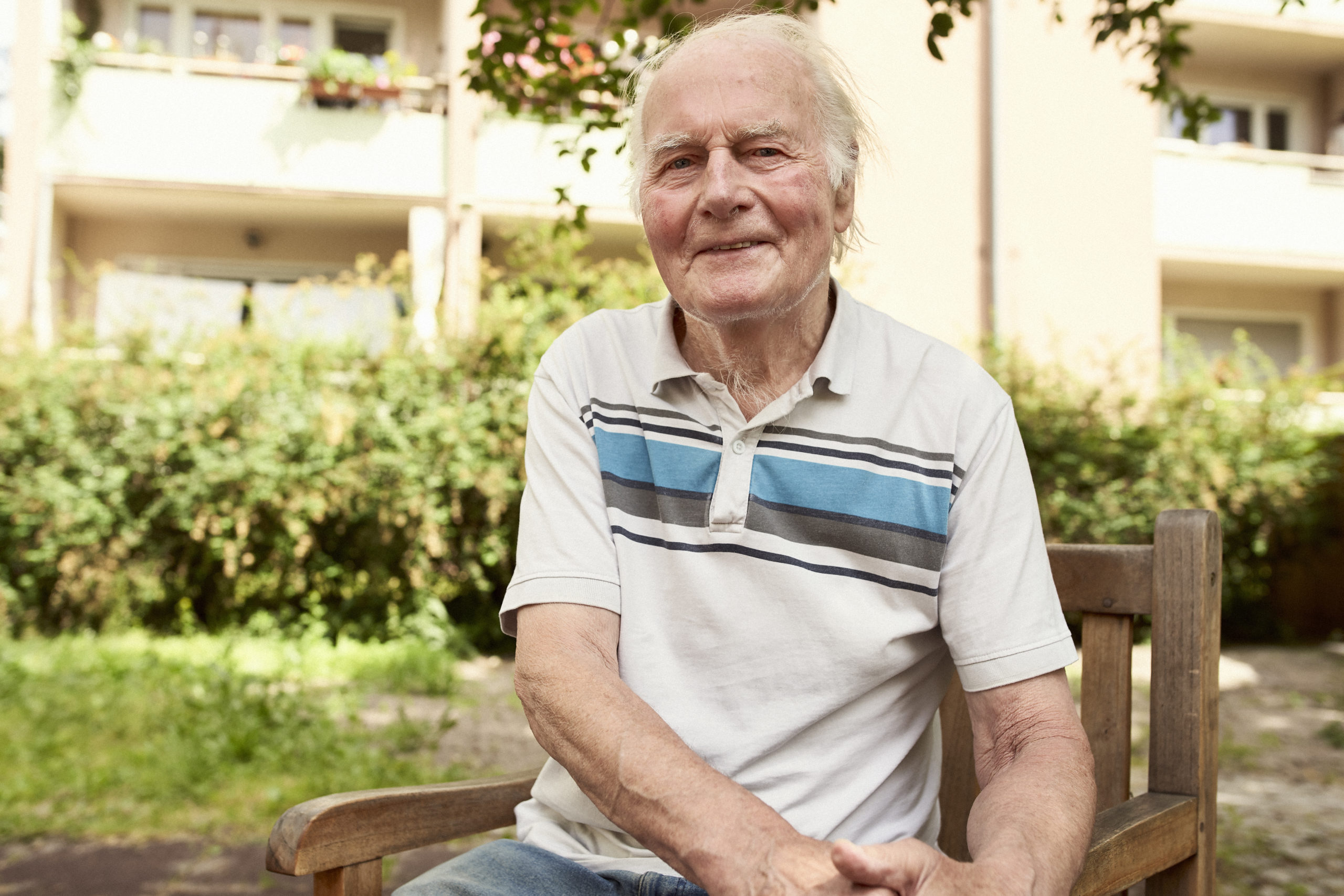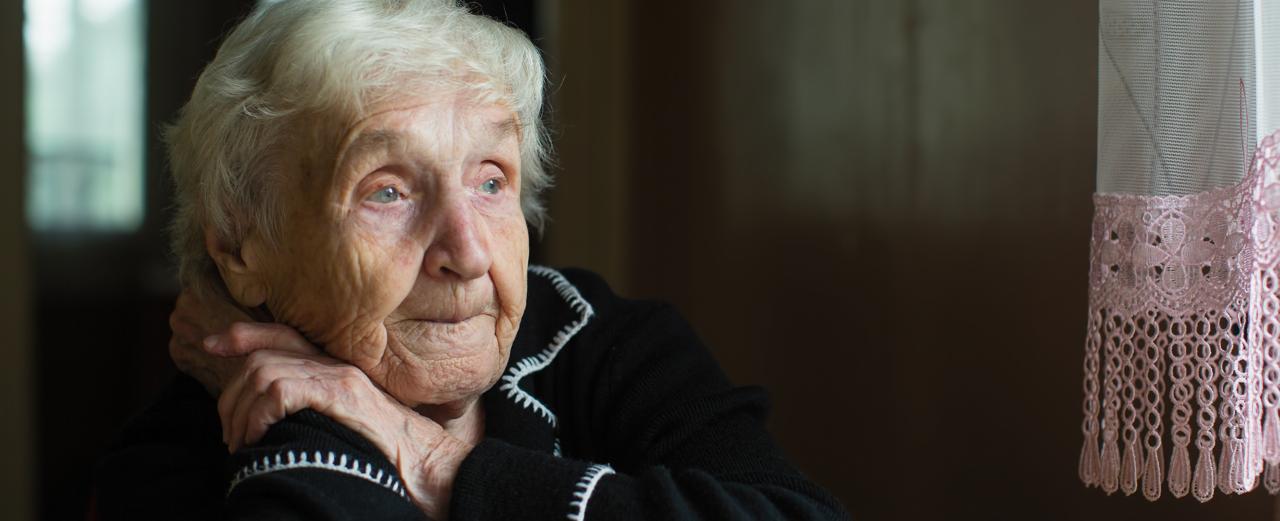 Addressing loneliness by spending time together
Addressing loneliness by spending time together
Support for elderly people in Berlin
In the spring of 2020, the message for protecting people from the corona virus was clear: Everyone should stay at home if possible and considerably reduce contact with other people. Many people have realised during this time how much they depend on companionship. Young people have used creative ideas to connect online. However, for many older people, who do not have access to the resources of the digital world, this option was not available. And many had felt lonely even before this crisis. According to a study by the German Ageing Survey (BMFSFJ, 2020), over 20 per cent of people over 85 living in Germany are at risk of social isolation. This risk increases with advancing age. However, not every person whose social contacts are restricted must therefore actually feel isolated. It is particularly those who want more social contact than they actually have that feel particularly lonely. People who are no longer so good on their feet find it especially difficult to maintain social contacts.
Necessity
Shared experiences for elderly people in need of assistance to address loneliness and isolation.
Activity
Excursions and leisure activities with accessible transport and personal care for elderly people from Berlin-Kreuzberg.
Countable effort
Number of minutes of communal activities and excursions for older people.
Result
Vulnerable elderly people make new contacts and have new projects to look forward to.
Systemic effect
Lonely elderly people are integrated in a social circle and can live on their own for longer. They stay healthier and have a higher quality of life.
Background
One in four elderly people only have friends and acquaintances visit once a month (DZA, 2014). In German cities in particular, older people often live alone and are at risk of becoming lonely. Those who are also affected by poverty are considered particularly at risk. There are effective ways of combating loneliness: talking, listening, going out, sharing experiences. When and how a person feels lonely is different for each affected individual. Of the more than 70 senior citizens surveyed in Berlin’s Wassertor neighbourhood, 57 per cent said that they did not have enough social interaction. Just under a fifth felt that their life was not worth living. In the district of Kreuzberg, the risk of old-age poverty is highest in Berlin.
The risk of becoming lonely increases especially for older people who live alone, are affected by poverty, have faced misfortune or have fallen ill and have limited mobility. Studies show that loneliness is a risk factor for high blood pressure, cardiovascular problems and mental illness (Luhmann & Bücker, 2019). Lonely people are often less active, more anxious and more pessimistic. They are more likely to expect negative encounters with others than people who are not lonely (Paritätischer Gesamtverband, 2019). But in order to live in good health, people need the feeling of being part of a community.
“I had distanced myself from myself. The regular encounters with others also brought me closer to myself again” (Ms B., translated from Turkish). Particularly in cities, local opportunities for getting together can also be a substitute for family life (BMFSFJ, 2019). They help older people to establish new contacts and integrate them into a social circle.
The good deed
Today's good deed helps poorer, older people from the Berlin-Kreuzberg neighbourhood to make new social contacts. With your donation you will allow an elderly person to participate in day trips and leisure activities. Accessible transport is provided so that people with reduced mobility can also take part in activities. In a calendar of excursions and events, Wassertor e.V. draws attention to dance events, coach trips and excursions into the surrounding countryside. The calendar is distributed directly in apartment buildings, doctor’s offices and pharmacies in the neighbourhood, which are some ways to best reach senior citizens.

AboutGermany
Berlin
Capital
83.132.800
Number of inhabitants
46.946 $
Gross domestic product per capita per year
Placed 4th out of 189
Human Development Index
One in three people living alone in Germany in 2018 was over 65 years of age. 21 per cent of the total population is 65 or older. Researchers estimate that this number will rise to 38 per cent by 2050 (BMSFJ, 2019).
About the organization and further information
Association
Wassertor e.V.
Phineo SKala Auserwählte

Further information and source
- Bundesministerium für Familie, Senioren, Frauen und Jugend (BMFSFJ), 2019. Frauen und Männer in der zweiten Lebenshälfte – Älterwerden im sozialen Wandel. Zentrale Befunde des Deutschen Alterssurveys (DEAS) 1996 bis 2017, Berlin.
- Der Paritätische Gesamtverband, 2019. Dokumentation der Fachtagung „Alt – einsam – isoliert!? Wege zur Teilhabe“, Berlin.
- Luhmann, M., Bücker, S., 2019. Projektbericht: Einsamkeit und soziale Isolation im Alter, Ruhr-Universität Bochum.
- Sammann, L., 23.03.2020. Sozialarbeit in Zeiten von Corona – Hilfe und Zuwendung per Smartphone, Deutschlandfunk Kultur, Köln.




